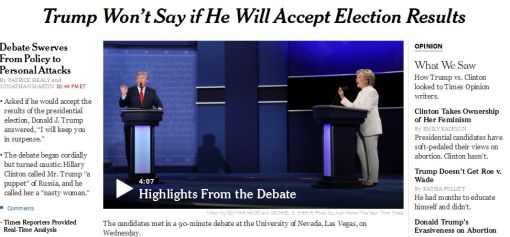Enough with the fucking men.
Oh, I know, I’m supposed to say Most men aren’t predators and #NotAllMen and maybe even Some of my best friends are men, but, honestly, enough.
It’s not just Harvey Weinstein (who deserves every shitty non-violent thing coming to him), or Donald Trump, or Roger Ailes or Bill O’Reilly or R. Kelly or Bill Cosby, not just Hollywood and the media and politics, but the university (see here and here and here and . . . ), finance, tech, and pretty well any damned place where men and women work.
And whose fault is this? I think you know.
Yes, it’s women’s fault that men harass them (us), for not being professional, for being too casual, for being too sexy, for being naive, for being too yielding, not fighting back, for having the goddamned audacity of daring to walk into the world in our female bodies.
(And, oh yes, men are also abused—see Terry Crews and Corey Feldman—which serves to demonstrate that shitty male sexual-power dynamics can ensnare anyone.)
If there are rumors or whisper campaigns? Well, maybe that’s not the real story, or maybe it’s just women misinterpreting things, or, y’know, maybe there’s just not enough evidence, he-said/she-said, whattayagonnado? And, oh, c‘mon, that favorite actor/comedian/musician couldn’t really have done that, could they? I mean, they’re famous: why would they have to take what so many would willingly offer?
And then when the harassment and abuse can no longer be ignored? Well, then, it’s our fault for not having IMMEDIATELY reported it or IMMEDIATELY denounced the abuser and, really, aren’t we just a part of the problem with our silence?
This is where I snap. I am unshocked by violence against women, by sexual harassment and catcalling and the everyday-ness of treating women as the sexual adjuncts of men. I should note I have never been sexually assaulted, am not usually catcalled, and have dealt with only a handful of harassers/abusers, so my rage is less personal than ontological: this is how it is to be a woman in our fucking world.
So Harvey Weinstein, a major Democratic donor, is exposed as criminally creepy, and. . . it’s somehow Hillary’s fault? Anthony Bourdain has gone after Weinstein and those who covered for him, but he made sure to take the time to express his “disappointment” in Hillary Clinton.
Yes, the Democratic Party and countless Democratic candidates—including male ones!—have taken Weinstein’s money, but, really, it’s a problem that Hillary’s response has been “uninspiring”, that she said she didn’t know?
Such horseshit, such worm-infested horseshit.
Here’s where the “enough with men!” comes in: if “everyone” really did know, then why is it only the women who should have spoken up? Jane Fonda said she feels “ashamed” for not coming forward a year ago, when she first found out; how many Hollywood men feel guilty for having known for years? How many of them are wondering why they didn’t take those rumors more seriously, didn’t take the women seriously?
Anthony Bourdain: if everyone knew, if you knew, then why didn’t you say something?
I don’t hate Bourdain, enjoyed Kitchen Confidential, and have watched and will likely watch some of his t.v. shows. I’d probably enjoy a barstool-bullshitting session with him, and would be unsurprised to find out he treats people decently. In short, I don’t think he’s a bad guy.
Which is rather the point: He’s not a bad guy, and he manages to slam a woman for not reacting in the right way to a bad man.
He’s not horrible, but, really, that’s all that can be said.
~~~
When I first jumped on Twitter and started following a bunch of people of color, I’d commonly see withering references to white people (or wypipo)—references which would inevitably lead to white folks jumping into that person’s mentions to say “. . . but not me!”
I didn’t do this, but I understood the impulse: You want to be one of the good guys, and just as if not more importantly, you want to be recognized as one of the good guys. #NotAllWhitePeople. . . .
The original Tweeter would usually react with anything from exasperation to impatience to contempt: If this truly doesn’t apply to you, then why do you need to make this about you?
I understood that response as well, or thought I did. I mean, I could see that the Tweeter had a point, but weren’t they, maybe, a bit. . . harsh?
Well. Yes. And?
I have come to see that the harshness was merited, an honest expression of distrust in the goodness of white people, of skepticism that white people really have any interest in confronting white supremacy, in getting outside of their (our) own whiteness.
I think most men are not rapists, are not harassers, and think most men probably treat people (including women people) decently. I also think most men don’t see themselves as in any way responsible for the culture which make it easy for some of them to behave so horribly.
So, enough. No credit for not being horrible, no credit for meeting minimal standards of humanness.
That doesn’t mean we can’t be friendly, can’t be decent colleagues, can’t enjoy ourselves in a session of barstool-bullshitting, but, when it counts, until I see otherwise, I don’t expect men to step up.


